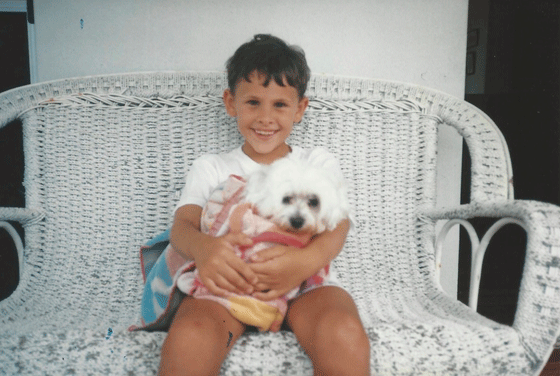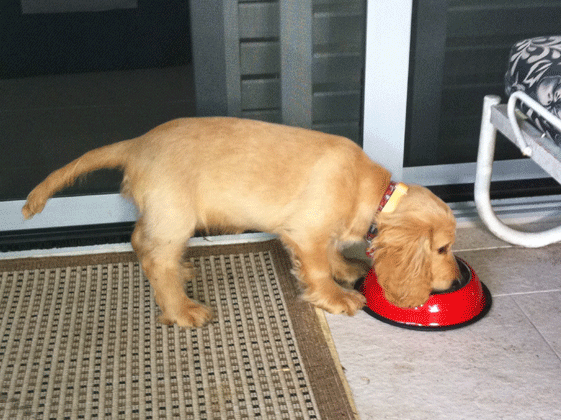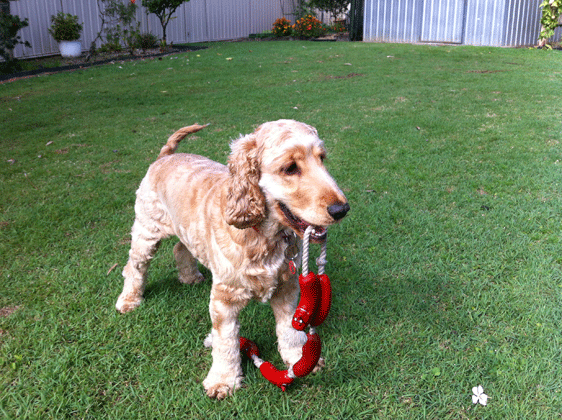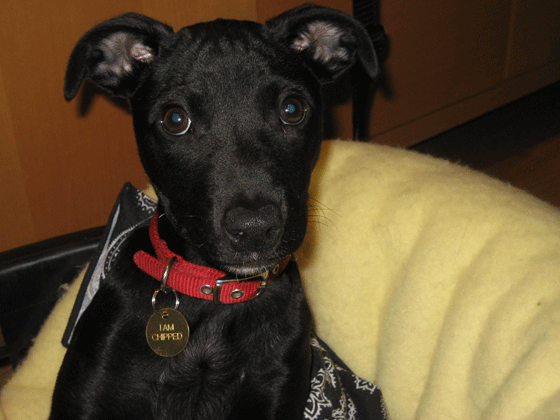The best piece of advice for new puppy owners is enjoy this time and have fun. Your pup will grow quickly and soon be sleeping well. You’ll both be in a new routine and you’ll just love that little puppy.
By the way, we suggest products that we believe benefit our community of dog owners. Any links on this page that lead to products on Amazon are affiliate links and I may earn a commission if you make a purchase as not additional cost to you.
Prepare your home before bringing your new puppy in to ensure a smooth transition. While preparations might seem straightforward, it’s important to follow some key safety tips and advice to keep your puppy safe.
Having experienced the whirlwind of welcoming four puppies and their mother at once, I can vouch for the chaos that ensues without proper planning. So, my first piece of advice is to be organized.
1. Dog food and water bowls
The first thing is to have food and clean water available to your puppy. He might be a little nervous and not want to eat or drink immediately, but he’ll feel more comfortable knowing that it’s there when he needs it.
First tip, choose stainless steel food bowls rather than plastic. There’s very good reason for this recommendation.
Puppies like to chew. It’s their way of exploring new objects and they also chew to relieve the pain of teething.
But chewing plastic food bowls can be detrimental to their health.
Chew marks in plastic bowls capture small particles of food, which can become contaminated with salmonella*, making your puppy very sick.
One of the best tips we can give new puppy owners is to choose stainless steel dishes. These are the best food bowls for a dog, and the safest. Make sure they’re cleaned on a regular basis.
2. Dog's bed and sleeping area
Have the sleeping area ready. Your puppy is coming into a new situation and he’ll have to adjust. And he will tire easily.
There’s a lot going on and he’s going to need a place where he feels safe and secure. Exploring a new environment, leaving his litter and getting to know you and his new home, there’s a lot to be anxious about.
You need to create a cosy, snug, secure environment for your pup so the transition to his new home is as stress-free as possible. We recommend a washable dog bed and choosing washable dog blankets.
3. Puppy food
Young pups have very different nutritional needs to adult and older dogs. The food that you’re feeding other dogs in your home might not be the best choice for your new puppy, particularly if the pup has come straight into your home from it’s mother.
Puppy owners are advised to feed their dogs foods that are rich in Docosahexaenoic Acid (DHA). Pups naturally receive this fatty acid through the mother’s milk. DHA can be found in many dog foods, and in offal if you prefer to feed fresh offerings.
If feeding a wet or dry dog food, the puppy varieties often contain high levels of protein which helps growth, and added calcium which is essential for developing strong bones and teeth.
DHA is a type of Omega-3 fatty acid which, according to experts, is ‘important for proper neurological development of humans and animals’*. It’s also vital in the developing central nervous system and retinal development.
4. Dog chew toys
If you value your furniture, your carpets, and your shoes, the tip is to be prepared and have some chew toys at the ready to deter your pup from chewing on anything and everything he can get his little teeth into.
Puppies chew for a number of reasons. They gnaw to relieve the discomfort of teething, and because they’re naturally curious little things and want to explore.
If your pup begins to show signs of being interested in inappropriate or destructive chewing, focus his attention on suitable chew toys and praise him for using these toys.
Tip: Have a variety of toys on hand. Rather than giving them all to your puppy at once, keep some away and switch them up from time to time so your pup doesn’t get bored. It will be a whole new adventure for him discovering his new toys, (or rediscovering his old ones).
Toys are stimulating play for your dog and give new textures to explore with his mouth.
Some dog owners who have ‘been there, done that’ will often suggest using anti-chew sprays that repel the dog from items that they don’t want touched.
![]() These can be beneficial, but if you decide to try this out, choose those with bittering agents, not aluminium sulfate. Although aluminium sulfate is believed to be safe in small amounts, it’s not recommended. It’s been found to cause abdominal pain, nausea, and sickness*.
These can be beneficial, but if you decide to try this out, choose those with bittering agents, not aluminium sulfate. Although aluminium sulfate is believed to be safe in small amounts, it’s not recommended. It’s been found to cause abdominal pain, nausea, and sickness*.
5. Make a microchipping appointment
Statistics shows that dogs that are microchipped are 2.5 times more likely to be reunited with their owner if they become lost than dogs without the chip. There’s no reason to be nervous about microchipping – it’s quick, safe, and although your dog may feel a sharp pain, this lasts for just a second, much like a regular vaccination at the vet.
Your new puppy may have been microchipped before you brought him home, but if not, it’s very important that you make arrangements to have your pet microchipped as soon as possible.
Anyone with first hand knowledge of a lost pet will tell you this is one of the most important things you can do. More and more countries around the world are introducing microchipping laws* which state that dogs must have a microchip, and for good reason.
6. Dog Poo Bags
We’ve researched and compiled a list from our top 5 choices for the most environmentally friendly dog poo bags to the best cheap bags.
Don’t be afraid to ask for advice
Whether you’re an experienced dog owner or bringing home your very first pet, having a new puppy in the home can be overwhelming. You should never be afraid to ask for help.
Local dog walkers, friends with pets and vets will all have a wealth of training tips and new puppy advice to help you settle into a happy, healthy life with your pup.
Resources
Find more information on these links:
You might also like
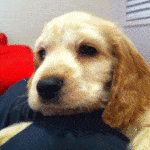 Mastering Puppy Sleep : Tips for a Restful Night
Mastering Puppy Sleep : Tips for a Restful Night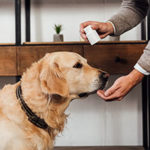 Pain Relief Options For A Dog With Arthritis
Pain Relief Options For A Dog With Arthritis How to Clean Dog Bedding and Shampoos
How to Clean Dog Bedding and Shampoos Most Dangerous Foods for Dogs and 5 of the Best
Most Dangerous Foods for Dogs and 5 of the Best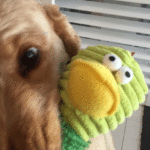 How to Stop Dogs Chewing their Bed / Destructive Chewing
How to Stop Dogs Chewing their Bed / Destructive Chewing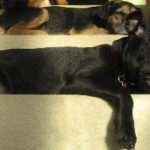 How to Get Your Dog to Sleep Later in the Morning
How to Get Your Dog to Sleep Later in the Morning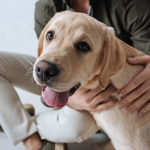 Best Dog Poo Bags – Compostable, Biodegradable, Scented and Budget Priced
Best Dog Poo Bags – Compostable, Biodegradable, Scented and Budget Priced Nutrition for Puppies – Top Food Picks and FAQs
Nutrition for Puppies – Top Food Picks and FAQs Electric Heated Dog Beds
Electric Heated Dog Beds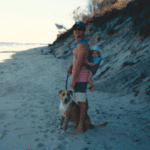 How to Safely Exercise an Arthritic Dog
How to Safely Exercise an Arthritic Dog


